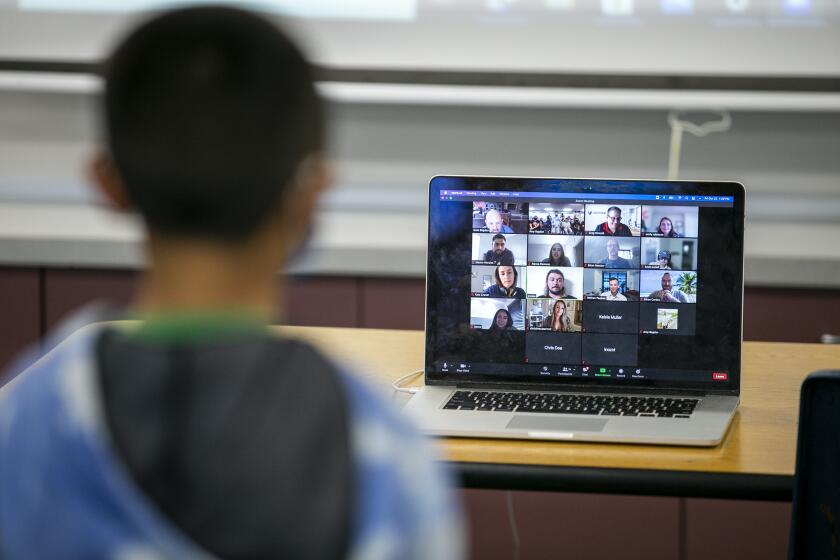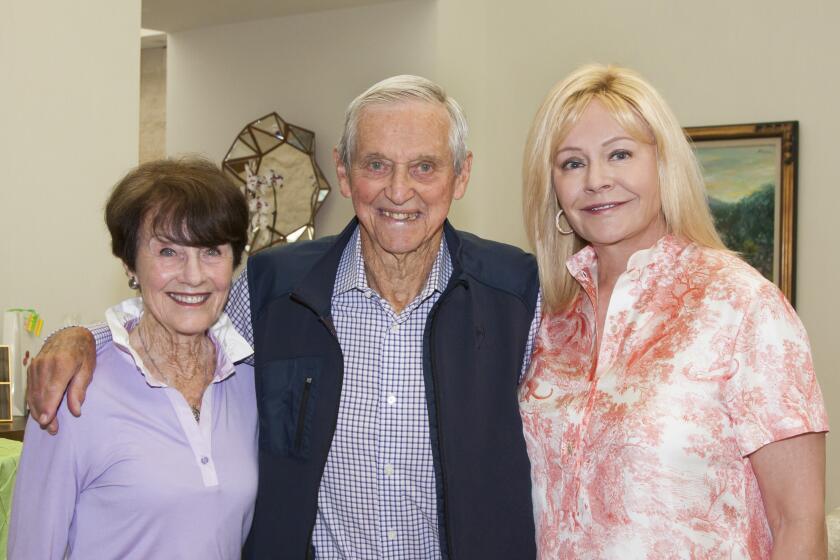Reader Report: From Newport to Croatia — ambassador shares his elegant but guarded life
Our car crept across the crowded boulevards of Zagreb, the capital of Croatia, until we reached Tuskanac, an elegant suburb of grand mansions in the forested foothills of Mount Medvedica.
Tuskanac — named for the central Italian region of Tuscany, whose inhabitants began settling in the quiet neighborhood in the 15th century — is the home of Newport Beach businessman W. Robert “Bob” Kohorst, whom President Trump appointed U.S. ambassador to Croatia in September 2017.
Following his appearance before the Senate Committee on Foreign Relations and subsequent confirmation by a unanimous Senate voice vote, Kohorst assumed the ambassadorship to the West Virginia-size nation of 4.3 million inhabitants on Jan. 10, 2018.
When he learned that my wife, Ludie, and I were in Zagreb during a recent three-week trip to the Balkans, Kohorst and his wife, Shelley Allen, invited us to the ambassador’s residence for drinks and then dinner at a downtown restaurant near our hotel, the Dubrovnik, which is named for the spectacular Croatian walled city that lies to the south on the Adriatic Sea.
The ambassador’s home is set back from the road amid hedges and trees and is surrounded by a high wall. When we pulled up to the main gate, a Croatian police officer occupying a guard house at the entrance to the 3-acre property eyed us carefully. I rang the residence door bell and out came armed security guards, the Kohorsts and two other guests — family friends from Pasadena, where the Kohorsts have a second home.
Parked in the driveway was the ambassador’s car, a bulletproof, armor-plated BMW X-5 sport utility vehicle that is driven by an armed officer accompanied by a security operative when Kohorst is aboard. A Croatian police car and an armored Chevrolet Suburban complete the ambassador’s motorcade.
Security personnel patrol the residence grounds, and “we also have a command center in the basement that would provide refuge from a terrorist attack or earthquake,” Kohorst said.
Zagreb has an earthquake profile similar to the Newport-Inglewood Fault, which runs from the west side of Los Angeles County to the Orange County coast. The command center is equipped with generators to provide emergency electrical power and has supplies of food, water and blankets, he added.
Security for U.S. diplomats and their vehicles, homes and embassies has been heightened in recent years, said Kohorst, 63.
In an attack in February 2018, a man threw a grenade into the U.S. Embassy compound at Podgorica, the capital of neighboring Montenegro. The blast caused minor damage to the embassy, and the assailant blew himself up with a second grenade.
Such attacks can trace their roots to the early 1990s, when Croatia, Montenegro, Serbia, Macedonia, Bosnia-Herzegovina and Slovenia — republics that composed communist Yugoslavia — began declaring their independence, leading to waves of “ethnic cleansing” and genocide among those acting on centuries-old nationalistic, religious, ethnic and territorial disputes.
The United States and the North Atlantic Treaty Organization stepped in to stop the carnage, and peace accords were signed in the early 2000s. But dissidents are still found in this volatile region. Authorities said the Serbia-born bomber of the embassy in Montenegro opposed Montenegro’s membership in NATO.
Before Ludie and I entered the residence of the ambassador, he pointed to a large house across the street that is occupied by the French ambassador and his family. Many other residences and embassies, such as those of Great Britain, Italy, Hungary, China, Belgium, Iraq, Spain and Malaysia, lie nearby.
The U.S. Embassy, where Kohorst and his staff of about 50 Americans and 175 Croatians have their offices, is near the Zagreb airport, a half-hour drive away. The embassy, on appropriately named Thomas Jefferson Avenue, is heavily guarded. There are about 80 other embassies in Zagreb, according to Kohorst.
The 85-year-old ambassador’s mansion, the home of eight preceding American ambassadors since the U.S. and Croatia began to exchange ambassadors in 1993, is furnished in what my wife says is a “homey yet elegant style.” Allen, the ambassador’s wife, told us that “all the furniture is U.S. government property except our bed, which Bob and I bought and shipped here at our own expense. We purchased it new from Westin Hotels, which makes the world’s best beds. Our bed is the Heavenly model.”
She and her husband have hosted 93 receptions in the house the past year for Croatian civic, charitable and government groups that ranged from a dozen to 250 guests. The ambassador, who receives an annual State Department salary of $150,000 and a $7,000 entertainment allowance, pays out of pocket for most of the reception and entertainment costs. When he travels on government business, he must fly coach.
Kohorst, whose three-year term as ambassador ends Jan. 10, 2021, said he and Allen, members of Big Canyon Country Club in Newport Beach, miss their North Bay Front home on Balboa Island, where “we spend as much time as possible with our two sons, daughter-in-law and grandchildren ages 3 and 6.”
“Balboa Island is crowded, hectic and relaxing at the same time,” he said. “We enjoy leaving our car at home and walking to dinner on the island. Bay tours in our 22-foot Duffy are a special treat. No matter how often we cruise the harbor, the time spent with family and friends on the boat is also special.”
“We miss Mexican food in Croatia,” he continued. “There are lots of great Mexican places to eat in Orange County. ... We like Croatian cuisine, but the variety and flavors of food in California can’t be beat. ... We also miss the July 4 and Christmas boat parades.”
Kohorst, the recipient of a bachelor’s degree in accounting from the University of Dayton in Ohio and a law degree from the University of Michigan, practiced law and became a partner in a Los Angeles firm before developing business interests that included the purchase of apartments, houses and other real estate ventures. He also served as chairman and director of United Investors Real Estate Corp., is a Million Dollar Roundtable donor to United Way of Greater Los Angeles and a former regent of Loyola Marymount University.
Kohorst, who also was a major financial backer of Trump’s 2016 presidential election campaign and a member of Trump’s Transition Finance Committee, said one of his prime assignments as ambassador has been to help Croatia reduce what he called “the excessive red tape, general inefficiency and overbearing bureaucracy” plaguing the country’s judiciary, tax systems and business communities that it inherited from Yugoslavia.
“I also like to feel that the advice I have given the Croatian government regarding the development of a natural gas pipeline has been one of my major achievements here,” Kohorst said, referring to a production, refining, storage and distribution facility under construction on the Croatian island of Krk in the northwest Adriatic. It will carry liquefied natural gas to Croatia, Hungary, Slovenia, Serbia and Montenegro to lessen their reliance on gas from Russia.
“The progress being made in Croatia is impressive,” said Kohorst, who expects that when his term as ambassador ends and he and Allen return home to Southern California, Croatia will be even further along in generating a more forward-thinking, stable, secure, entrepreneurial and market-oriented economy.
David C. Henley, a Newport Beach resident, is a contributor to Times Community News.
All the latest on Orange County from Orange County.
Get our free TimesOC newsletter.
You may occasionally receive promotional content from the Daily Pilot.



